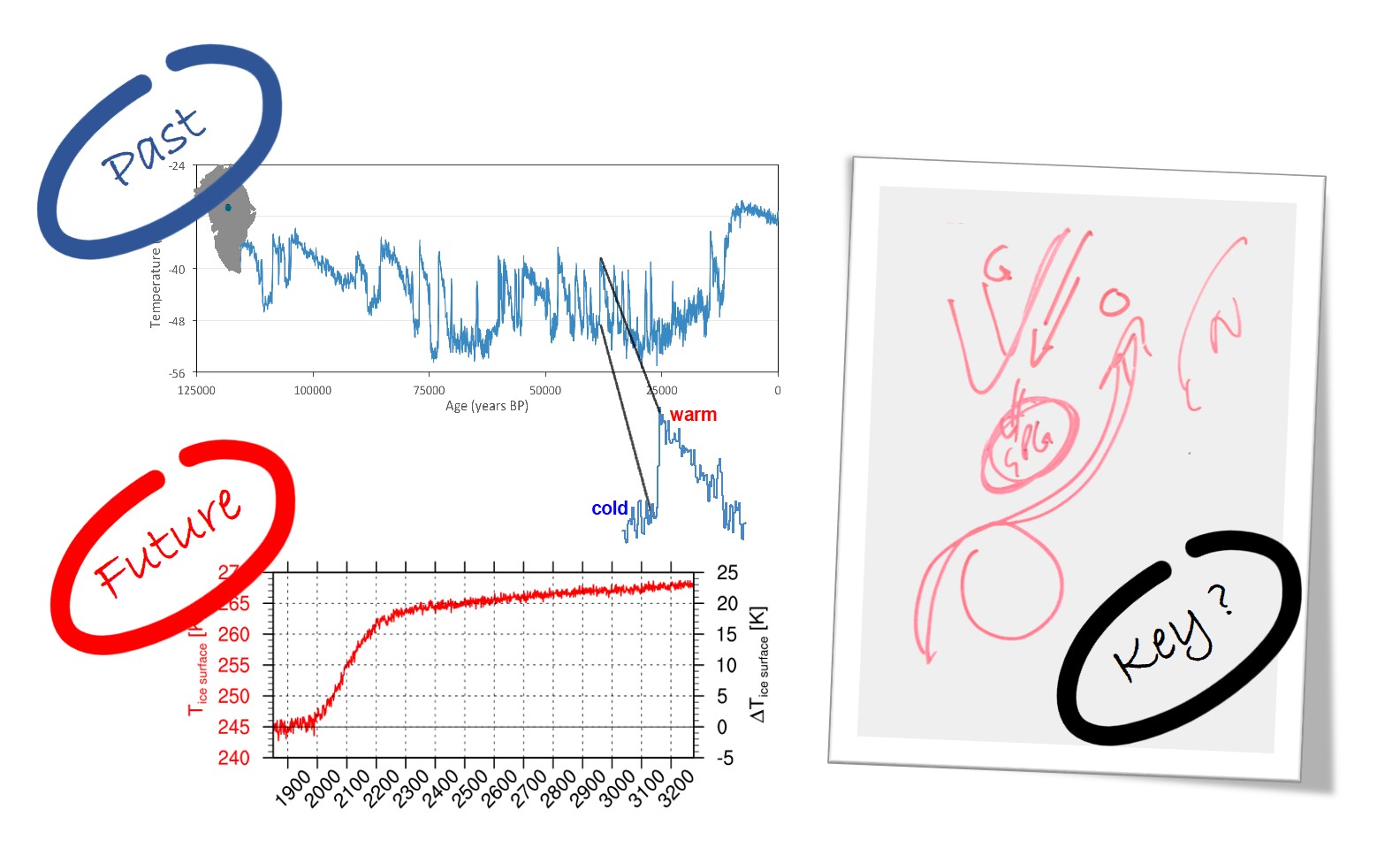Ice2ice workshop summary
Written by Rasmus Pedersen
Can our combined knowledge of past abrupt changes provide lessons for the future?
20 ice2ice researchers with varying backgrounds and ‘seniority’ met in Copenhagen to discuss to what extent the combined ice2ice knowledge of past climate change is relevant for future climate scenarios.
With input from modellers and proxy data experts, the very interactive workshop featured presentations and discussions of proxy data reconstructions, paleoclimate modelling efforts, and future model projections focusing on sea ice related warming near Greenland.
The program was split into three sessions – leading to a step-by-step assessment of similarities and differences between the past and potential future conditions. Below are some headlines from the sessions, along with the summary with notes and plans for future work (if you are part of ice2ice you can find these in the dropbox).
Topic 1: Rate of warming and sea ice loss
- Magnitude of past Greenland warming in proxy data and paleo modelling efforts are similar (10 K), but rate of change is higher in models compared to proxy records.
- Rate of future warming in model projections does not appear abrupt (but are the models able to simulate abrupt change?). Rate of future ice loss does appear abrupt in selected models
Topic 2: Nordic Seas [paleo] vs Arctic Ocean [future]
- The dynamics and properties of the present/future Arctic Ocean and past Nordic Seas have similar features, but there might smaller differences that are of key importance.
- Greenland is sensitive to ice loss in “the vicinity”, but the atmospheric response to sea ice loss is highly sensitive to the location (and magnitude) of ice loss.
Topic 3: Drivers of (abrupt) sea ice loss
- The paleo mechanism(s) could in principle apply in a future, Arctic Ocean setting. This does, however, require further investigation. The potential for future abrupt sea ice loss can be assessed by testing concrete ice2ice hypotheses explaining the past abrupt (D-O) sea ice loss.
